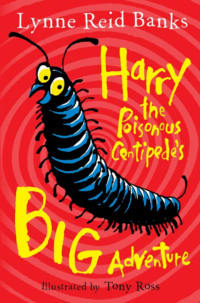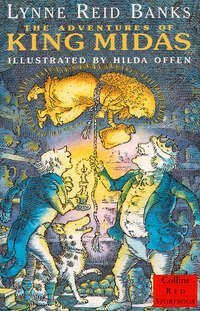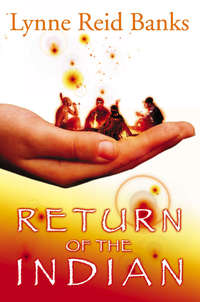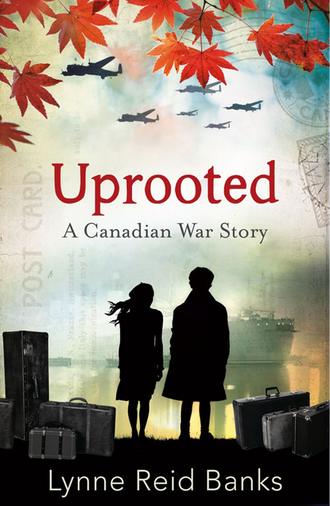
Полная версия
Uprooted - A Canadian War Story
He sucked in his lips. “Gotta learn to shoot. You start with a BB gun. Course, you can’t shoot anything big with those, but you can get a few gophers.”
“What’s a gopher?” Cameron and I asked at once.
“You don’t have gophers in England? They’re little critters about this big – ” He held his hands about eight inches apart – “They live on the prairie, in holes. Millions of ’em. You shoot a couple, fry ’em up – makes a dandy meal on toast. Of course you gotta skin ’em and gut ’em first.”
Mummy had her nose in her hands. I looked at her. Then back at Hank. He looked completely serious.
“What about girls? Do they have to shoot gophers too?”
“Well, no, girls are let off shootin’ if they don’t like it. But they do have to ride out on the prairie, and then they can catch their breakfast another way.”
“How?”
“I’ll tell you. You make a loop in a long piece of string, and put it around a gopher hole. Then you wait. When he puts his head up, you jerk the loop tight round his neck, and there’s your breakfast.”
I made a face.
“Of course,” Hank went on, “if you got a soft heart and don’t wanna eat him, you can have him for a pet.”
I thought of my pet rabbit, Moley, left behind. “How do I catch him?”
“Gophers are crazy about condensed milk.”
Mummy gave a stifled snort.
“So what you do is, you take your tin of condensed milk. You punch two holes in it, top and bottom, and then you use that same length of string with the loop in it to drag the tin across the prairie. The gopher comes along and starts licking up the milk, and by the time the tin’s empty, he’s a-layin’ there on his back with his belly full of his favourite food, and you can ride back and pick him up, and he’s yours. For life.”
I listened, entranced. I could see it all! My own pet gopher!
“I’ll eat cereal for breakfast!” I exclaimed.
Mummy couldn’t contain herself. She bent over her knees and exploded.
“And what about me?” she managed to choke out. “I can’t ride and I can’t shoot and I refuse to strangle little things to death.”
Hank seemed to think about this. “Well, maybe on account of you’re all fresh from the Old Country they may let you off and give you bacon and waffles for a few days, till you settle in. But I’m sure relieved you kids can ride horseback, because maybe they won’t, and you’ll have to go out and shoot something to eat on the first morning. Enough for your mom as well.”
“I could do it. I bet I could,” said Cameron. “I’ve hunted foxes and got the brush. I was in at the kill. I got blooded!”
So then he explained very seriously to Hank about fox hunting and Hank said, “You mean they smear fox blood on the kids’ faces and give ’em the fox’s tail? Are you telling me a tall story, by any chance?”
The last part of the train journey got us seriously worried. The windows were now so dirty that if we wanted to see out properly we had to sit on the observation platform. The interesting countryside we’d seen earlier, changed. It was no longer full of lakes and hills, pine forests sprinkled with little towns and the occasional log cabin, not to mention exciting wildlife – Cameron had seen an eagle, and I’d seen a huge thing with strange antlers that Hank told us was a moose. Now the landscape was flat. No trees. No lakes or rivers. Just flat, flat, flat land under a swaying sea of yellow wheat. There were few signs of life. Only some farms, miles apart – hours apart.
“What are those things?” Cameron asked Hank, who was sitting with us pretty much full-time now.
“Grain elevators,” said Hank. “When the wheat’s harvested they bring it to the railheads and store it in those big square towers. Then they load it on to the trains to take it all over Canada.”
“But aren’t there any towns – proper towns?”
“Sure there are. Saskatoon is a big town. Population forty-odd thousand.”
“That’s not big,” said Cameron. “London’s got millions of people.”
“Ah well, I’m not saying it’s a big city. Though that’s what they call it. The Hub City of the Prairies.”
“How old is it?” Mummy asked.
“Not old. Maybe sixty, eighty years. Might still be some old-timers living there who remember when it was nothing but an Indian settlement.”
I pricked up my ears. “Indians? Real Red Indians?”
Hank looked a bit uncomfortable. “Well you know, they aren’t red, and they’re not Indians. We Anglos call them that, because we made a mistake when we first got here, thinking we’d arrived in India! But if you ever meet one, you don’t want to say, ‘Gee, are you an Indian?’”
“So what should we call them?” Cameron asked.
“By their tribe, maybe. Around Saskatchewan, it’s Cree. And other tribes. But mostly Cree.”
“Where are they? Can we see them?”
“They’re all on reserves now.”
Later, when I got Cameron alone, I said, “Wouldn’t it be fun if we really had to ride across the prairie and we met some Crees!”
“What if they were Apaches? Or Navajos? There are hundreds of different tribes. There must be a generic name for them if we can’t call them Indians.”
Cameron and his lovely long words! Generic. I got it. Something for all of them, instead of Indians. But for the moment I forgot about them, whatever they were called.
“Look at it,” he said. “It’s all wheat. How could we ride through that? It’s weird.”
If ‘weird’ means strange, unknown, utterly different, then he was right about where we were going. Or, as Hank taught us to say, “He sure slobbered a bibful.”


We reached Saskatoon at six o’clock in the morning. Mummy woke us early, when there was hardly any light coming through the window of my berth – just enough to see the endless wheat fields rushing by. She took us along to the cramped, smelly washroom at the end of the carriage and produced some clothes she’d been saving for us to make a good impression when we arrived. My frock was very creased but at least it was clean. Cameron wore his school blazer, even though it had been getting hotter every day.
“Shall I wear a tie?” he asked.
“I don’t know … We should have asked Hank,” said Mummy.
She was putting make-up on. She hadn’t worn much on the journey, just lipstick and some powder, but now she put on eye shadow and mascara, and earrings. I thought she looked beautiful, and actress-y.
She wore a very pretty dress I hadn’t seen before, and stockings, and shoes with a bit of a heel. She wrapped her lovely blonde hair in a sort of turban. She looked like at home when she was going out for lunch. We bundled all the rest of our things into our suitcases as the train rocked the last few miles to our destination.
We stood near the exit door. Mummy smoked. She said, “I remember feeling just like this before I went on stage on a first night to play a big part.”
I’d once acted a big part in a school play – a queen. I suddenly remembered standing in the wings in my red dress with my hair down my back, with such a sudden terror of forgetting my lines that I nearly ran away. Yes. It was like that now.
Only Cameron seemed completely calm. “I wonder if they’ll come to meet us in a horse and buggy,” he said.
Just as the whistle blew for Saskatoon, Hank turned up. He must have got up early to say goodbye.
“You’ve been quite wonderful,” said Mummy. “A lifesaver.”
He shook hands with her, but she suddenly kissed his cheek. She had to stand on tiptoe.
“You’re welcome,” said Hank.
We’d never heard that phrase before. Mummy stared at him.
“What a very nice thing to say,” she said.
“Here’s my address in Calgary,” he said, giving Mummy a card. “Let me know if you need anything. Be good kids for your mom, now.” He shook Cameron’s hand and gave me a hug. “Go git them gophers!” he said. “Oh! I forgot to tell you – you want some pocket money, the government pays a bounty for every tail!”
The train pulled into the station. Right opposite where we stood, hung the sign that read ‘SASKATOON’.
“Is that an Indian name?” my clever cousin asked.
“Yep,” said Hank. “It’s the name of a berry. And ‘Canada’ is an Indian word too. It means ‘Big village’.”
Mummy and I were hanging out of the doorway, looking up and down the platform. There were lots of people waiting. But suddenly Mummy said, “There they are. Look. Those three down there, the white-haired man and the man and woman. Bet you.”
The train hissed to a stop and people started forward to get on or to greet people. ‘Our three’ were staring anxiously at the doorways. Mummy stepped out, waved, and called quite loudly, “Uncle Arthur!”
The older man turned quickly. Then, with the help of a walking stick, he came hurrying towards us, his face alight.
I didn’t know him at all, only that he was Mummy’s uncle, that he lived alone, that he was a retired bookkeeper. That he’d taken the trouble to find us some people to live with. But when I saw his face for the first time, warm with welcome as he strode towards us, I knew at once that I would love him.
He clasped Mummy in his arms, his stick falling to the ground. Cameron jumped down and scooped it up. We stood beside them, waiting. I happened to look up and saw Hank in the train doorway. He lifted our suitcases down and Cameron took them one by one. He looked at Mummy with a funny, soft look, and gave us a tiny wave. Then he disappeared, and we were smothered in a mass hug from Uncle Arthur, who smelled of pipe tobacco and welcome.
There was a lot of bustle all around us, but I felt someone close behind me. I turned, and faced a stranger with dark hair and glasses and a beaming smile.
“I know who you are! You’re Lindy!” he exclaimed. “I’m Gordon! I’m your new Poppa, the guy you’re coming to live with! Gee, this is great! Can I give you a li’l hug?”
I let him. He smelled strange. It was a smell I knew, but it was out of place here. Then he turned and a woman with hair too white for her face came forward rather shyly.
“This is Luti, my wife. Mrs Laine – Momma! – meet our little girl! And this—” he almost pulled Cameron forward with a hand on his shoulder, “this must be Cameron!” He wrung Cameron’s hand, pumping it up and down. “Gee whizz, you’re such a big boy, I didn’t expect – I thought you’d be about this size!” He put his hand about a foot from the ground.
Luti said softly, “Don’t be silly, Gordon.” She gave me a quick kiss on the cheek. “Welcome to Saskatoon, Lindy.”
Mummy had turned towards us, still holding Uncle Arthur’s hand. There were introductions and more handshakes.
Mummy said, “We must go and see to our big luggage.”
“Oh, don’t worry about that!” Gordon said heartily. “They’ll have it off the train by now. Our railways are wonderful! Don’t you folks just love Canada? C’mon kids, let’s go find your bags!”
I noticed Cameron had peeled off his heavy school blazer. It was sweaty hot at seven in the morning.
Uncle Arthur called a taxi for him and Mummy and some of the luggage. Cameron and I drove to our new home in the Laines’ car. Cameron, who knew all about cars, hissed to me in the back seat that it was a Hillman Minx. He sounded surprised. Later he explained, “I thought they’d be rich.” Hillman Minxes weren’t, it seemed, what rich folks bought, at least not in England.
Gordon chatted the whole way.
“It’s gonna be so great to have kids around the place, huh, Mrs Laine? I mean Momma? I can’t wait to get started being a poppa! Look, kids, there’s our river! Bet you didn’t expect it to be so big, huh?”
We hadn’t expected it to be, at all. It was certainly the most exciting thing we’d seen for twenty-four hours of prairie. It was wide and had waves and steep banks, and rushed under the big bridge we were crossing.
“The city of bridges! That’s what we call Saskatoon! This one’s called Broadway Bridge. You’ll soon be criss-crossing it on the streetcar, to get downtown to the movies, I bet! We’ve got five movie theatres! Waddaya think of that? Almost like London, eh?”
“Of course it’s not like London,” said Luti in her quiet little voice.
“Only kidding,” said Gordon.
The car pulled up in a curved street with some pleasant-looking houses on each side. The house where we were going to live had a lawn that came down to the pavement, and as soon as we opened the car door, a dog came rushing to meet us. I could feel Cameron’s mood changing. He just couldn’t help himself.
“Here comes Spajer to say hi to you!” said Gordon.
Spajer was a golden cocker spaniel with long, silky ears. He jumped all over us. He was a lovely dog and Cameron couldn’t resist patting him, but I sensed he felt a bit disloyal to Bubbles.
“Is Spajer an Indian name?” asked Cameron.
Gordon roared with laughter, but Luti said, “We had another dog before him called Jasper.”
“Oh, I see! An anagram,” said Cameron.
Both the Laines stared at him.
“Smart boy,” said Gordon, sounding surprised.
Mummy and Uncle Arthur arrived and there was a kerfuffle as we got the luggage into the house. There suddenly seemed to be an awful lot of it, and Gordon made a joke about “You folks planning to stay awhile?” which I don’t think any of us got.
Mummy was very quiet and tense and stuck close to Uncle Arthur. He kept his arm around her whenever he could. I knew they’d never met before, but already they seemed to love each other. I know now that Mummy felt close to him because he was family and everybody else in this whole city was a stranger.
The house was pretty, though not like an English house – very new-looking with lots of windows and polished wooden floors and modern furniture, all clean and shiny. There were gardens on three sides. The curved street was wide and not too busy, with trees and front gardens without fences. We all wanted to see our bedrooms and I wanted to have a bath – Mummy kept sort of picking at her dress where it was sticking to her – but Gordon wanted to talk.
“You kids’ll soon learn the neighbourhood,” he said. “See that li’l park across the street? You can go there by yourselves and play and find pals. In the winter they turn the whole park into a skating rink. Bet you can’t ice skate!”
We agreed we couldn’t.
“I just can’t wait to teach you! Bet you’ve never seen snow like we get here! Two, three feet at a time! That’s not counting the drifts!” He held his hand right over his head to show how deep the ‘drifts’ got.
Snow higher than a man? Cameron gave me a look. He was thinking what I was – we could make forts and tunnels, crawl in and play amazing adventure games. From then on I started looking forward to winter. And not just because of the heat now, which was the worst I’d ever felt.
Luti excused herself and went into the kitchen while Gordon offered us drinks – Coke for us (ugh! – but at least it was cold) and iced water for Mummy and Uncle Arthur, after they’d both refused ‘a li’l snifter’. I didn’t know what that was, but then Gordon opened a shiny cupboard in the corner and brought out some bottles. Mummy looked amazed to be offered alcohol so early in the day, but Gordon had one. It didn’t look so ‘li’l’ to me.
Gordon stopped talking to sip his whiskey and we just sat there on the chintz armchairs. There was a long, difficult silence. Finally Uncle Arthur said, “You know, I think my folks might like to see their rooms and maybe clean up before breakfast.”
“Luti!” Gordon called. She came almost running in. “What are you thinking of, honey? Take these folks up to their rooms, huh? I’ll bring the bags up.”
“But I’ve just put the bacon on,” she said.
Cameron and I looked at each other. We’d suddenly remembered Hank’s tale.
“So we don’t have to ride out on the prairie to shoot our breakfasts?” Cameron said.
“Whaaaat?” Gordon shouted.
Luti gaped at us, her blue eyes staring.
Their faces! We suddenly realised we’d been had!
Cameron and I laughed until we choked. We couldn’t stop. Mummy had to calm us down.
“Please can we go to our rooms?” she begged.
Uncle Arthur left us. At the door, he said, “I don’t like ‘Uncle Arthur’. Sounds Victorian. Why don’t you call me O’F?” Then he kissed us all goodbye.
Mummy seemed to cling to him. Luti led us upstairs and showed us our rooms. One for Mummy and me with two single beds and a dressing table with a frill round it. The window overlooked the back garden. I went to look out, and noticed something funny. The window had netting on it, like our meat safe at home.
“We have screens on the doors too,” Luti said, following my gaze. “The bugs get in anyhow. We say our mosquitoes are as big as cockroaches and the cockroaches are as big as gophers.”
“What are the gophers as big as?”
“Beavers, I guess!” she laughed. “Tell me if I’ve forgotten anything you need.” She stared at Mummy for a moment. “You’re real pretty,” she said suddenly. “Everyone’s going to love you.”
I decided I liked Luti. I liked her saying Mummy was pretty. Although she wasn’t pretty. She was beautiful. Even tired out and stressed and with her make-up sweated off.
Cameron had a smaller room. He looked round it bleakly, but then he saw it had a desk with lots of drawers, and a bookcase with some books in it.
“In her letter, your mom told me you like to read, Cameron,” Luti said. “I chose some books for you. I hope you like them.”
“Thank you very much,” said Cameron, sounding really grateful.
“We only have one bathroom,” she went on, “so it may get a bit crowded. But for today it’s all yours. I’ll delay breakfast. Come down when you’re ready.”
Mummy went first. She said she was desperate to get clean and asked us to wait, which we did, in Cameron’s room. He started off by going through the books Luti had bought, but then there was a scratching at the door, and Spajer joined us, and after that no reading got done. I think Spajer decided round about then that he was at least half Cameron’s dog.
Mummy came out of the bathroom at last, in a dressing gown, smelling lovely.
“Bubble bath. That Luti,” she said to me quietly, “has thought of lots of little kind things.” Then she said one of her favourite phrases, “The little more, and how much it is. The little less, and what worlds away!”
Cameron went next. I watched Mummy start doing her face.
“Gordon talks a lot, doesn’t he?” I asked.
“Lindy.”
“What?”
“Shut the door.” I did. “Listen, darling. I want you to remember something. We’re going to owe these people a lot. They’re going to have to pay for everything – everything we need, everything we eat, and everything we do that costs money. I want you to be aware that this is their house, and that they’re here. Don’t say or do anything that might offend them.” She took the towel off her head and began to comb out her long blonde hair. “I’ll say one other thing. We’re ambassadors for England. People will be watching us. They’ll judge England by how we behave. Do you understand, my poppet?”
“Yes. But he does talk a lot, doesn’t he?”
“Yes. I hear Cameron coming out … Go and have your bath and I’ll come in and wash your hair for you.”
That first Canadian bath, after the three-inches-of-hot-water ones we’d been rationed to at home, was unforgettable. So deep, so hot, so full of bubbles! I felt as if I was washing off the grime of a coal mine, and then I felt like a movie star. As I lay chest-deep while Mummy washed my hair, I forgot all about the journey, the war, the strangeness. I just wallowed.
“Maybe it’ll be all right – Canada. Saskatoon. The Laines,” I said.
Mummy just made lots of lather and said nothing.
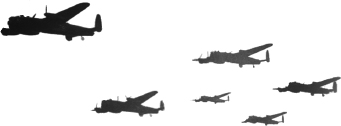

We had three weeks of freedom to explore and find our feet before we had to start Canadian school, but I was too excited by everything around us to think much about that. Cameron, though, as usual, was better at thinking ahead. He asked Luti questions about school and then told me the answers.
“It’ll be just an ordinary local school,” Cameron told me. “They call them public schools here – the opposite of public schools in England. I don’t think they have private schools here where you have to pay.” He fiddled with his shoelace and then said, “It’s boys and girls.”
I’d never been to anything but an all-girls school.
“Do you think that’ll be weird?” I asked Cameron, nervously.
“They’ll probably think we’re weird,” he replied.
Luti had a ‘daily’ – a Swedish woman who came in to clean and who gave us a foretaste of how interesting we were. She didn’t really talk to us (she couldn’t speak much English) but she stared at us as if we’d fallen off the moon.
That, though, wasn’t as bad as the visitors. They’d started coming on the first day. We’d hardly begun to unpack after breakfast when the doorbell rang, and after that it didn’t stop ringing. It seemed all the Laines’ friends wanted to meet us. Well – have a good look at us, anyway.
For the first week it was like one long party. Most of these strangers probably meant to be kind and welcoming, but Mummy still got the heebie-jeebies. She felt she had to be ‘on show’ to the visitors, and be a good ambassador, but she got more and more stressed. Twice I came home from playing out and found her crying (quietly) in our room.
“I feel like a fish in a bowl,” she whispered, blowing her nose. “A performing fish.” She reached for her Black Cats. She always whispered whenever we were talking privately, even with the door closed. “And the way they drink! At all hours! They tease me because I won’t knock back the whiskey like they do. They’re calling me Ice-water Alex! If I drank like they do, I’d fall flat on my face!”
“Does Luti drink a lot?” I asked.
“No. But Gordon drinks enough for both of them.” She muttered this out of the side of her mouth, but I heard it.
Gordon wasn’t around much, because he worked all day as a lawyer and had an office downtown. He had ‘KC’ after his name, which stood for King’s Councillor, and which in England you didn’t get to be until you were an important – and rich – lawyer. Gordon and Luti weren’t rich. Cameron had been quite right about the Hillman Minx. Gordon was just an ordinary small-town lawyer after all. But it was quite a while before we realised this. The Laines were determined to show us and all their friends – and maybe even themselves – that they could afford to have war guests. Mummy hardly ever had to ask them for money at first. Gordon thrust wads of dollars into her hand every Saturday but she always gave them back, taking only what she needed for little things for us, and for her Black Cats.
All the grown-ups I knew smoked. Mummy tried to cut down, but it was very hard for her. She needed her ‘coffin nails’ as she called them. Of course I hated her calling them that but Mummy knew smoking was bad for you and she told me I must never start.
“My lungs are so full of tar by now they’re like black sponges,” she said.
“But then why do you do it?”
“Because I can’t stop. Which is why you must never start.”
Mummy was invited to a lot of people’s homes. She didn’t want to go, but she felt she had to. Luckily Cameron and I weren’t included so till school started in September, we were free a lot of the time. Free in a way we’d never been before. And we made the most of it.


